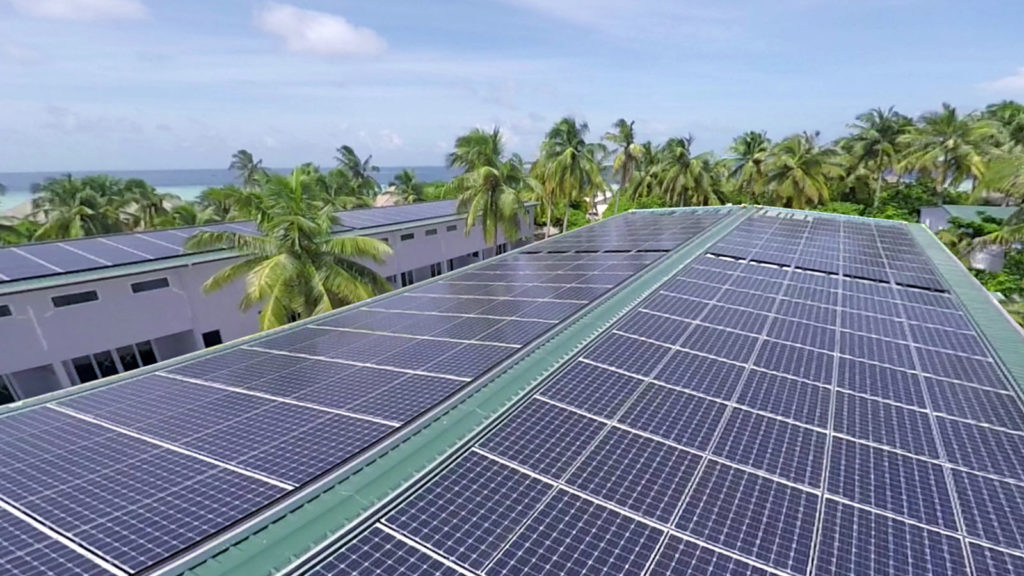
Maldives Receives First SEZ Investment Proposal: Mega Solar Energy Project to Generate 110 MW
In a historic development, the Maldives takes its first stride towards economic diversification as President Dr. Mohamed Muizzu unveils a groundbreaking proposal for a mega solar energy project, heralding the initiation of investments under the Special Economic Zone (SEZ) Act. The ambitious project aims to generate an impressive 110 MW of renewable energy, marking a paradigm shift from traditional sectors like tourism.
Addressing the audience at the Maagiri Hotel during the presentation of the Maldives Association of Construction Industry (MACI) Builders Award, President Muizzu expressed the government's commitment to opening up avenues for investors under the SEZ Act. This visionary move, he highlighted, represents a crucial step towards achieving global environmental goals, particularly in the aftermath of the COP28 meeting.
While details of the mega solar energy project were not disclosed during the ceremony, the President emphasized its significance as a pioneering effort globally. The project not only signifies the Maldives' commitment to embracing sustainable practices but also positions the nation at the forefront of renewable energy initiatives on the international stage.
Under the SEZ Act, the Maldivian government has set a minimum investment threshold of USD 100 million (MVR 1.5 billion), aiming to attract diverse investments across nine identified sectors. These sectors include manufacturing, transshipment ports, tertiary hospitals, international finance, and, notably, renewable energy.
President Muizzu urged the construction industry to leverage the opportunities presented by SEZs and emphasized the importance of local companies playing a significant role in the renewable energy sector. In alignment with this vision, he encouraged local companies to actively seek foreign investment, highlighting the government's readiness to facilitate the bulk import of construction materials with SEZ status.
The expansion of SEZ scope, coupled with the initiation of high-impact projects like the mega solar energy venture, signals a new era of economic transformation for the Maldives. President Muizzu envisions multiple opportunities for local companies in the construction sector, positioning the industry as a key player in the nation's development projects.
As the Maldives embarks on this transformative journey, the mega solar energy project stands as a beacon, symbolizing the nation's commitment to sustainable development, environmental stewardship, and a diversified economic landscape. The proposal represents not only a pivotal moment in the Maldives' history but also a pioneering endeavor that aligns with global efforts to combat climate change and transition towards a greener, more sustainable future.